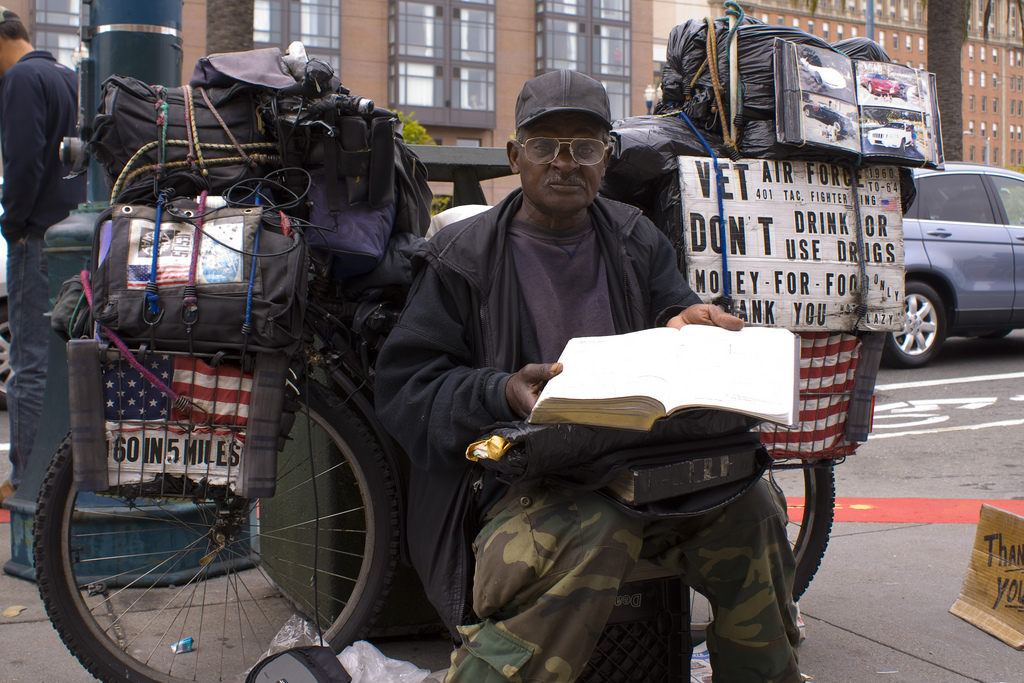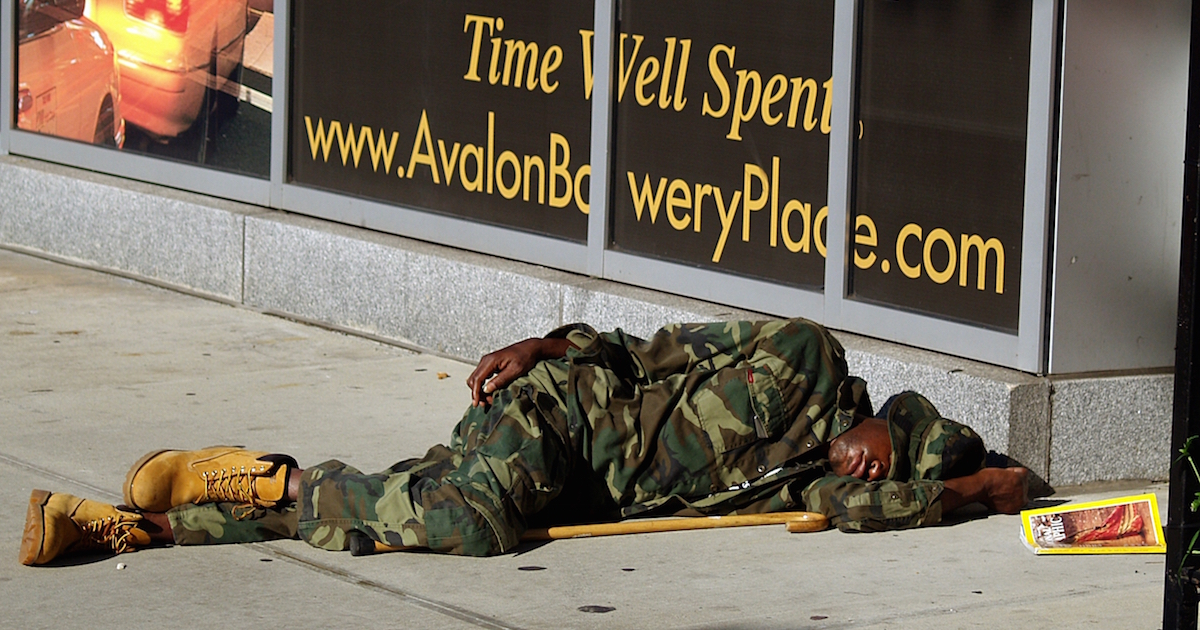San Francisco 'Tech Bro' Shows the Lack of Empathy Toward the Homeless

By:
San Francisco has become a symbol of income inequality in America, with high-paid Silicon Valley tech workers moving into the city, pushing rents to sky-high levels and forcing lower-income residents out.
via giphy.com
The city also has a crisis around its homeless population, which has been largely ignored by political leaders.
Against this backdrop, a San Francisco tech bro's letter to the city's mayor and the police chief complaining about homeless people has spurred outrage among people who are sympathetic to the plight of the homeless. They argue that the tech bro's letter is a tone-deaf response to a serious problem, and that it perpetuates myths about the homeless.
The letter, which went viral, was written by Justin Keller, founder of Commando.io. In it, he wrote that he feels unsafe around homeless people, and he doesn't want to see them when he's going to work:
"The residents of this amazing city no longer feel safe. I know people are frustrated about gentrification happening in the city, but the reality is, we live in a free market society. The wealthy working people have earned their right to live in the city. They went out, got an education, work hard, and earned it. I shouldn’t have to worry about being accosted. I shouldn’t have to see the pain, struggle, and despair of homeless people to and from my way to work every day. I want my parents when they come visit to have a great experience, and enjoy this special place."
Keller's "just pull yourself up by your bootstraps" mentality reflects an attitude that we often hear from politicians: People who are homeless or struggling financially just need to work harder and believe in themselves. The problem is that the idea is patently false.
In fact, the factors that contribute to homelessness include financial background, health, and personal relationships, and these factors can be difficult to overcome. You can't pick yourself up by your bootstraps when you don't have any shoes.
Bootstrapping is just one of many myths and misconceptions about the homeless. Another is that homeless people should "just get a job." Well, the most recent figures show that 44 percent of homeless people actually have jobs.
 Flickr/Vera Yu and David Li - flickr.com
Flickr/Vera Yu and David Li - flickr.com
Another myth is that people get used to being homeless and take advantage of benevolent strangers who are willing to give them money for nothing. The reality is that the vast majority of people who become homeless are only homeless for a few days. Only about 83,000 people in America are "chronically homeless," and that number is declining every year.
Many of our homeless citizens are veterans, and many of them have health problems that make it difficult for them to work or function in a normal way.
The good news is most Americans don't believe that homeless people "are lazy or should just get a job, that they don't deserve help or that they're bums or alcoholics," said Paul Toro, a psychology professor at Wayne State University who focuses on homelessness and poverty. His research indicates the majority of Americans are compassionate about the homeless.
About 60 percent of respondents to surveys Toro conducted in the early 1990s and early 2000s said they would be willing to pay more taxes to help the homeless. (Toro is planning another survey on the subject soon.)
Even in New York, 73 percent of residents said they wanted the city government to do more to help the homeless, according to a Quinnipiac University poll from earlier this year.
But there's still a significant minority who aren't sympathetic. "People of a conservative political attitude are probably a little more negative" toward homelessness, Toro said. Even so, he added, his research shows that people from both sides of the political spectrum have the capacity for empathy and care when they see someone in trouble.
Many people who are homeless have mental health issues, Toro said. He estimated that about 25 percent have serious mental conditions such as schizophrenia or bipolar disorder. Many also have substance abuse problems, which is considered its own kind of mental health problem.
The media have contributed to negative attitudes about the homeless, Toro said. Major news outlets dealt with the issue a lot more in the 1980s, but that coverage has slowed significantly. Now, when the media cover homelessness, it is less compassionate.
The tone started to change once homelessness became a national crisis in the 1980s, The New York Times reported in 1991.
"New York City, Santa Barbara, Calif., and a number of other cities are acting out of both frustration and desperation, pressed by hard times and by a public that has grown increasingly impatient with a problem that has worsened despite the programs aimed at relieving it and previous shows of good will.
"'People want to help, but they don't want to feel that they're just being suckers,' said Mayor Loni Hancock of Berkeley, Calif. 'The cities that try to help get overrun and then comes the backlash. There comes a time when people want to step back and insulate themselves.'"
It seems we're still dealing with the problem of how to address homelessness, judging from complaints such as Keller's. The majority of Americans feel compassion for the homeless, but too many still live by old misconceptions.

